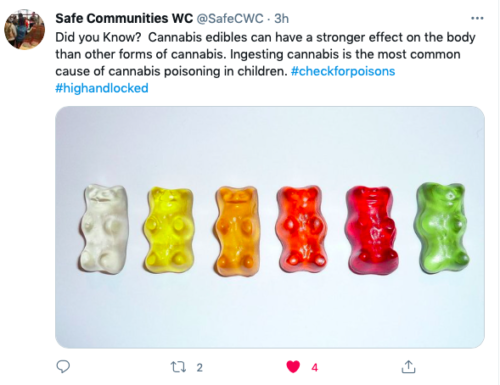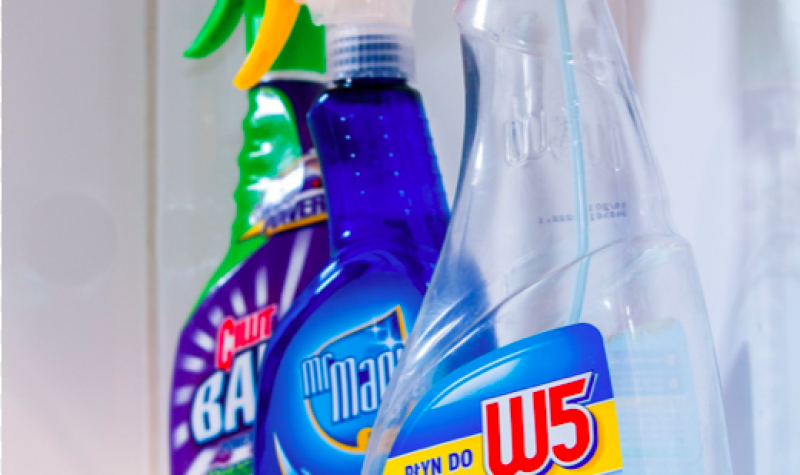Safe Communities Wellington County is taking part in National Poison Prevention Week from March 21-27 to raise awareness about preventing unintentional poisoning.
The Ontario Poison Centre said they are seeing an increase in cases of children unintentionally eating edible cannabis products and requiring hospital admission.
Safe Communities Wellington County program coordinator Christine Veit said, 88 per cent of Canadian parents agree that it’s easy for a child to mistake cannabis edibles for candies or sweets.
“But it’s crazy that only just over 30 per cent of adults actually put their cannabis edibles and products high and locked away from their kids,” Veit said.
Veit said many cannabis edibles are in packaging that sometimes looks identical to candy sold in a convenience store, and if the general public sees this they can call Health Canada as well as the Ontario Poison Centre to report the misleading packaging.

Ingesting cannabis is the most common cause of cannabis poisoning in children. Photo from: Safe Communities WC Twitter account
In 2020, the Ontario Poison Centre saw a six per cent increase in calls coming from the home versus calls from hospitals, schools, workplaces and public areas.
After reviewing their top 10 home exposures, household cleaning products moved up to the number one spot for children under 6-years-old.
The Ontario Poison Centre said the shift may be related to the pandemic with more families staying home, and there has also been an increased focus on hand washing, cleaning and disinfecting.
“In general, the biggest thing that we’re trying to get out there is keep your cleaning products, prescription medication [and] your cannabis high and locked [away], that’s probably the easiest way of putting it,” Veit said.
Veit stressed even if people put these things high out of reach from children, they will find a way to climb up and get them, so it’s crucial for people to purchase a lock or a lock box because if children retrieve these things they will harm them if ingested.
During National Poison Prevention Week, Safe Communities Wellington County will also be focusing on educating the public on opioid overdoses.
Viet said although the majority of accidental poisonings happen to children under the age of 6-years-old, there has been an abnormal amount of overdoses across Ontario and in Wellington County.
“We’re working with the Wellington Guelph Drug Strategy and talking to them about how we can educate the general public and the biggest thing is to have naloxone kits available, that we need to have naloxone kits in the hands of people who have family and friends who are at risk,” Veit said.
Veit said people need to be aware that naloxone kits cannot be kept in the car because they are temperature sensitive and they also have an expiration date.
She added participating pharmacies’ do give out free naloxone kits or people can call Wellington Guelph Drug Strategy to get one.
Christine Veit, program coordinator for Safe Communities Wellington County:


